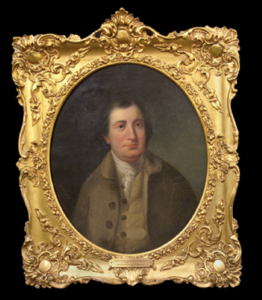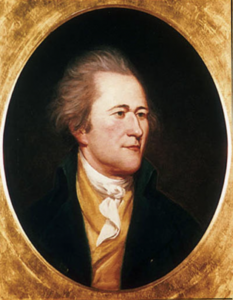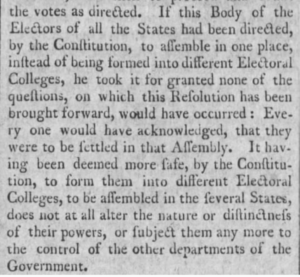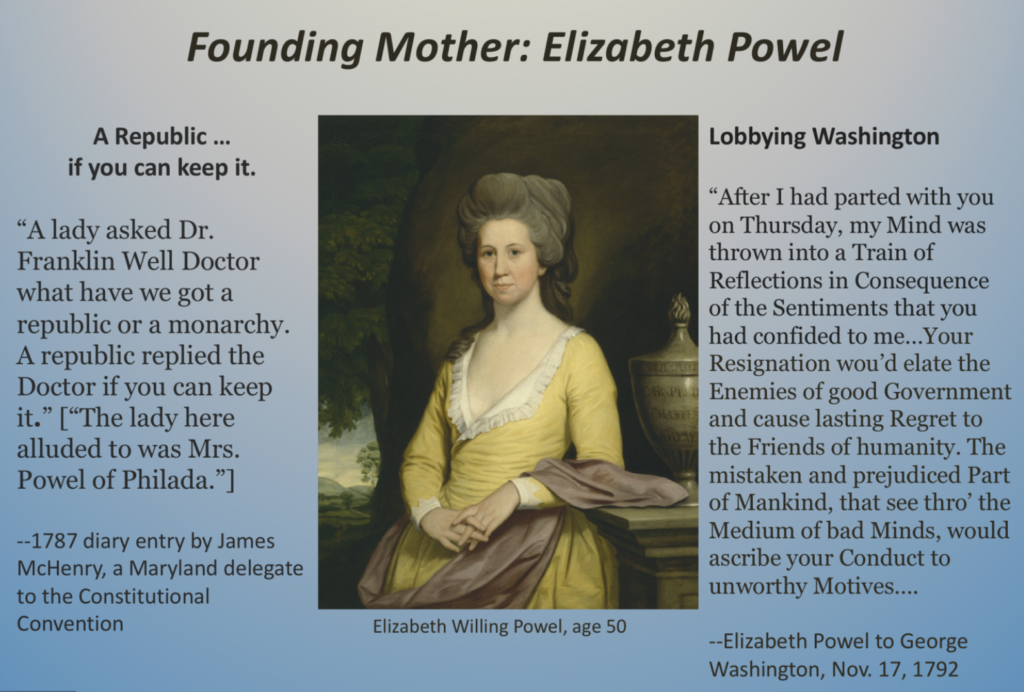“Startling as it was, the Constitution that emerged from the Convention in September 1787 was not the half of it. If those who were surprised at the extraordinary nature of the national government created by the Constitution had known what had actually gone on in the Convention, they would have been even more shocked. The national government that came out of the Convention was much less powerful than many of the delegates had wanted.” –Gordon Wood, Power and Liberty, p. 76
Discussion Questions
- Was the Connecticut compromise at the 1787 convention about the tension between large and small states, or was it more precisely about the fate of states themselves in the new national government?
- Why did James Madison, arguably Father of the Constitution, feel that he had failed in several of the key negotiations at the convention?
“that a national government ought to be established consisting of a supreme legislature, judiciary, and executive” –Edmund Randolph, May 30, 1787, quoted in Wood, p. 78
- Proportional representation in bicameral national legislature
- Lower house elected by people; Upper house elected by lower house
- National executive(s) selected by national legislature
- National judiciary (superior and inferior courts) selected by national legislature
- Council of revision (part executive / part judiciary) to veto certain state & national laws
- National legislature also retained power to “negative all laws” passed by states
“On June 18, in the midst of this debate over the Virginia and New Jersey plans, Alexander Hamilton of New York suddenly rose and made his own personal proposal for a government in a four- to five-hour-long speech. His proposed government was consolidated in the extreme, virtually abolishing the states as independent entities. He wanted an executive and senate elected for life, with the executive to have absolute veto power over all legislation. The states would remain as administrative units with their governors appointed by the national government. He accompanied his plan with praise of the English constitution and criticism of the Virginia plan.” –Wood, pp. 81-82
Where you stand depends on where you sit.
–Miles’ Law (Rufus Miles, Jr.)
Electoral College
Sen. Abraham Baldwin of Georgia made one of the earliest known references to “electoral colleges” in Lancaster Intelligencer, April 9, 1800
“Finally, after much discussion and many votes, the Convention decided to create an alternative Congress composed of notables who would know who was competent to be president; it would have one function: to elect the president every four years. This electoral college seemed to solve all the problems. It guaranteed the president’s independence from Congress without limiting the terms of office. And yet, as an exact replica of Congress, it had all the advantages of the July 16 compromise on representation between the nationally minded delegates and the small-state delegates.” –Wood, p. 86




